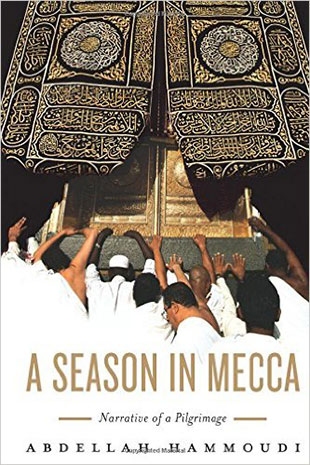The pilgrimage to Mecca or hajj is the fifth pillar of Islam, and it has been performed by Muslims every year for the past 14 centuries as an act of devotion and surrender to Allah. Abdellah Hammoudi was born in Morocco and has taught anthropology at Princeton for many years. "I am a Muslim,' he writes, "who continually questions the religion's fundamentals but fiercely maintains its ethos." Putting it another way, he is a secular Muslim.
In this erudite and engaging account of his hajj in 1999, Hammoudi admits his fascination with this expression of faith and his desire to experience its mysteries and challenges. Obstacles abound, beginning with complications in getting on the roster of pilgrims allowed by Morocco.
It is a delight to see this journey of 2.5 million Muslims through the eyes of an anthropologist who is used to describing things in detail. In Medina, the city of the prophet Muhammad, Hammoudi is amazed by the incredible energy of the markets where people sell every good conceivable. The pilgrims' devotion is matched by their consumerism, as they purchase gifts for family and friends. The zeal of the Wahhabi stewards, conservative Muslims who control the sacred sites, angers the author, particularly their constant harassment of women and their insistence that all bodies be covered. Of course, this kind of fundamentalist legalism and rigor is rampant in certain segments of Christianity and Judaism as well. When the time comes for Hammoudi to circumambulate the Kaaba in Mecca, his energy is drained by the flu. But at this climactic moment, the scholar truly becomes a pilgrim caught up in the baraka (grace) of the moment.
